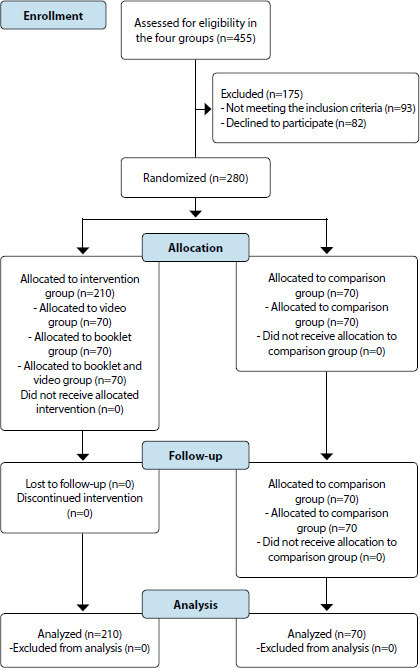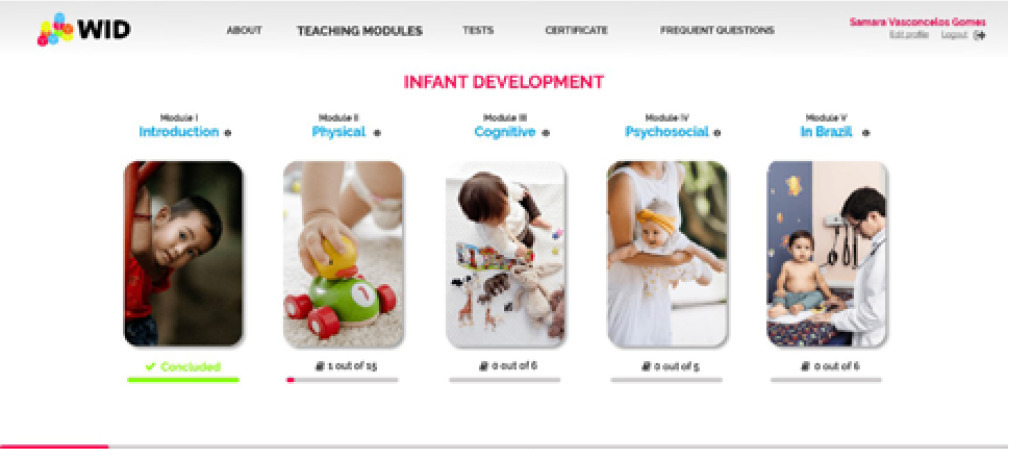-
ORIGINAL ARTICLE09-26-2022
Effects of educational technologies on maternal self-efficacy in preventing childhood diarrhea: a clinical trial
Revista Brasileira de Enfermagem. 2022;75(5):e20210339
Abstract
ORIGINAL ARTICLEEffects of educational technologies on maternal self-efficacy in preventing childhood diarrhea: a clinical trial
Revista Brasileira de Enfermagem. 2022;75(5):e20210339
DOI 10.1590/0034-7167-2021-0339
Views0See moreABSTRACT
Objective:
To evaluate the effect of educational interventions on maternal self-efficacy in preventing childhood diarrhea in mothers of children younger than five years old.
Methods:
Basic randomized clinical trial involving 280 mothers of children under five years old.
Results:
There was a statistically significant increase in maternal self-efficacy scores after the application of the video (p= 0.026), booklet (p <0.001) and video and booklet (p <0.001).
Conclusion:
The combined use of video and booklet proved to be more effective in promoting self-efficacy than the isolated use. Thus, the interventions used in this study have been shown to significantly increase maternal self-efficacy in preventing childhood diarrhea and, therefore, can be used by health professionals as effective tools.

-
ORIGINAL ARTICLE05-09-2022
Wise Infant Development®: creation of a software for teaching in pediatric nursing education
Revista Brasileira de Enfermagem. 2022;75(5):e20210466
Abstract
ORIGINAL ARTICLEWise Infant Development®: creation of a software for teaching in pediatric nursing education
Revista Brasileira de Enfermagem. 2022;75(5):e20210466
DOI 10.1590/0034-7167-2021-0466
Views0See moreABSTRACT
Objectives:
to create a software application for nursing education on child development assessment.
Methods:
this is a methodological applied research developed in three stages: analysis, design, and development. Product quality characteristics from the ISO/IEC 25010 standards were adopted. The programming language used was JavaScript. The educational software was developed based on a constructivist cognitive theory.
Results:
it was possible to create the software from the following quality metrics: functional suitability, reliability, usability, performance efficiency, compatibility, security, maintainability, and portability. The technology addresses child development in physical, cognitive, and psychosocial domains and how this assessment should be carried out in Brazil. The software has pre and posttests, 5 learning modules, certificate issuance, support for doubts, and an administrative panel. Final Considerations: it is concluded that the software adds to the existing tools for child development monitoring, facilitating students’ knowledge acquisition in promoting child health.




